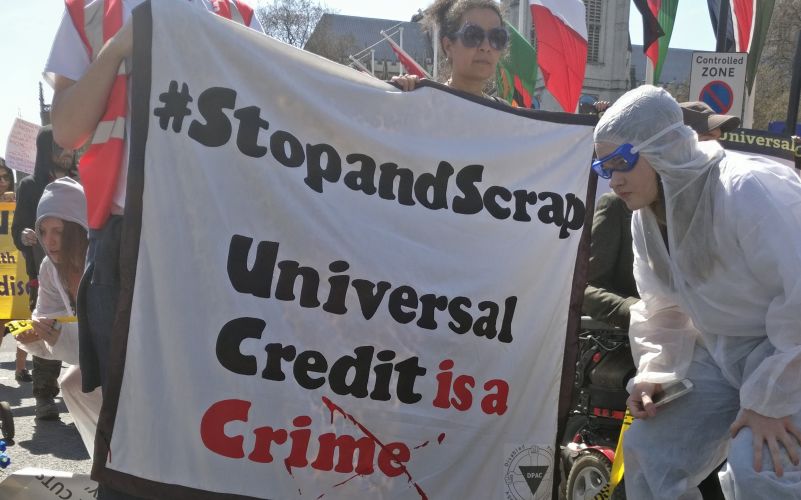The government has lost or destroyed a secret report that was set to reveal crucial details about the impact of universal credit on “vulnerable” claimants in its early years.
The existence of the report was not known about outside government circles until the Department for Work and Pensions (DWP) was forced by a tribunal to release a follow-up report late last year.
But this week, two government departments claimed – after each of them originally suggested it was being held by the other – that they no longer held a copy of the report.
The report was written by the former Prime Minister’s Implementation Unit (PMIU), which was based within the Cabinet Office, but has since been scrapped.
The follow-up report, How Effective is Support for Vulnerable Universal Credit Claimants?, revealed significant flaws at the heart of the universal credit system and how DWP supports claimants it sees as vulnerable.
This report, produced in autumn 2019 and finally released in November 2023, concluded that the design of universal credit was “inadequate for vulnerable groups” who therefore needed extra help from staff through adjustments and specialist support.
It also said the support provided by universal credit was “inconsistently effective”, with some claimants “not adequately supported”, while the system for managing individual cases was “suboptimal”.
It made it clear that the introduction of universal credit in 2013 – combining six working-age benefits into a single monthly payment through a “digital interface” – had presented “more acute challenges for some vulnerable claimants”.
DWP said in November that universal credit had “transformed significantly” the support it provides to claimants, “especially those who are vulnerable”, since the report was written, and that it had “made a large number of changes to improve how vulnerable individuals are supported”.
Disability News Service (DNS) had been seeking a copy of the report since late 2021, alongside Owen Stevens, from Child Poverty Action Group, and John Slater, who first secured the universal credit papers that revealed its existence.
But the document also referred to an earlier PMIU report which “brought together what is known about the claimant experience, identifying DWP’s support mechanisms for vulnerable claimants”.
DNS submitted a request on 11 November to DWP’s freedom of information team to release this earlier report.
But when it responded a month later, it said: “We confirm that we do not hold the information you have requested.
“The report referred to within the PMIU report was commissioned and is held by Cabinet Office, not DWP.”
DNS subsequently submitted a similar request to the Cabinet Office, on 11 December.
When the Cabinet Office replied, last Friday (12 January), it said: “We are writing to advise you that following a search of our paper and electronic records, we have established that the information you requested is not held by the Cabinet Office – Equality Hub.
“You may wish to redirect your request to the Department for Work and Pensions.”
DNS asked both departments this week why they were blaming each other for not being able to provide the missing report.
Neither of them would provide a statement, but DWP suggested that both departments had searched their records and had not been able to find the report.
A note from the editor:
Please consider making a voluntary financial contribution to support the work of DNS and allow it to continue producing independent, carefully-researched news stories that focus on the lives and rights of disabled people and their user-led organisations.
Please do not contribute if you cannot afford to do so, and please note that DNS is not a charity. It is run and owned by disabled journalist John Pring and has been from its launch in April 2009.
Thank you for anything you can do to support the work of DNS…

 ‘Disastrous’ cuts bill that leaves legacy of distrust and distress ‘must be dropped’
‘Disastrous’ cuts bill that leaves legacy of distrust and distress ‘must be dropped’ Four disabled Labour MPs stand up to government over cuts to disability benefits
Four disabled Labour MPs stand up to government over cuts to disability benefits Silence from MP sister of Rachel Reeves over suicide linked to PIP flaws, just as government was seeking cuts
Silence from MP sister of Rachel Reeves over suicide linked to PIP flaws, just as government was seeking cuts